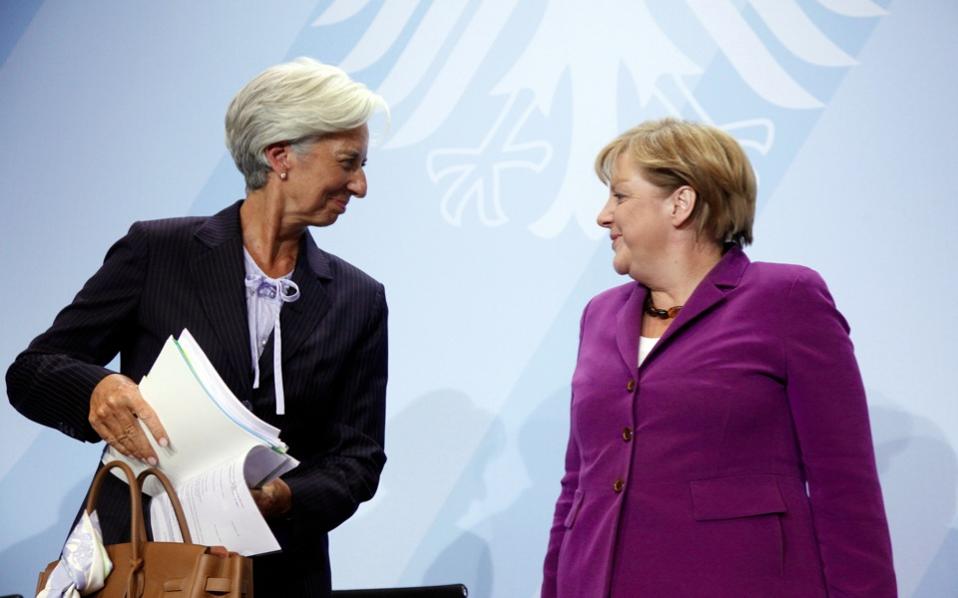Greece, Merkel and the IMF

A relationship built on unforeseen and extreme experiences will be put to the test between now and Easter. Greek Prime Minister Alexis Tsipras has clearly developed close ties with German Chancellor Angela Merkel. I’m not sure how many times a week the two communicate, but I’m certain it is quite often. Merkel has invested in Tsipras and Turkey’s Recep Tayyip Erdogan because she believes her political future lies in their hands. If the deal regarding refugees and migrants signed by the EU and Turkey works out, the flow of people from the Turkish coast will stop, leading to less pressure for her. If not, then that’s a different story.
Tsipras gave it his all on this front, ranging from NATO patrols and the presence of Turkish officials in Greece to the participation of European police forces in refugee and migrant returns. This entire operation would not have been mounted without his approval.
The prime minister reasonably believed that in return he would get a much softer stance regarding the Greek bailout review by the country’s creditors, one that would reduce the political pressure on him. The truth is, however, that misunderstandings and misinterpretations often arise on the Athens-Berlin line of communication. Recently, for instance, the Greek team came to believe that a gradual and partial disbursement of bailout tranche money could actually take place before the review’s complete conclusion. When it became evident that this was a misunderstanding, the Greek team’s initial irritation nearly led to an interruption in the negotiations.
The Greek side has the unique ability of losing its temper at the worst possible time. This was the case when Tsipras called a referendum after receiving a long final list for reforms and austerity measures from the lenders. The same happened with the International Monetary Fund. All Europeans, with a few exceptions, believed that the IMF had gone too far and that perhaps it was best for the Fund to remain on board solely as a consultant. The government’s over-the-top response to the recent WikiLeaks publication did not help the Greeks at all. Merkel does not wish to come across as “soft” and be identified with the Commission. A number of eurozone member-states feel the same way. As for the IMF, its chief, Christine Lagarde, said yesterday that it would not accept a “special deal” for Greece.
In other words, things became tough because of poor handling. It remains to be seen whether Merkel will be able to settle the game, either by pushing for a “light” review of the Greek program and the IMF’s withdrawal, or for generous debt relief with the IMF on board. The Schaeuble element remains pivotal. While the German finance minister has softened his stance, what this actually means will be revealed in a few days. That’s when Tsipras will receive yet another “final bill.” Let us hope that if it’s a heavy one, which might very well be the case, his reaction will not be to once again roll the dice.





